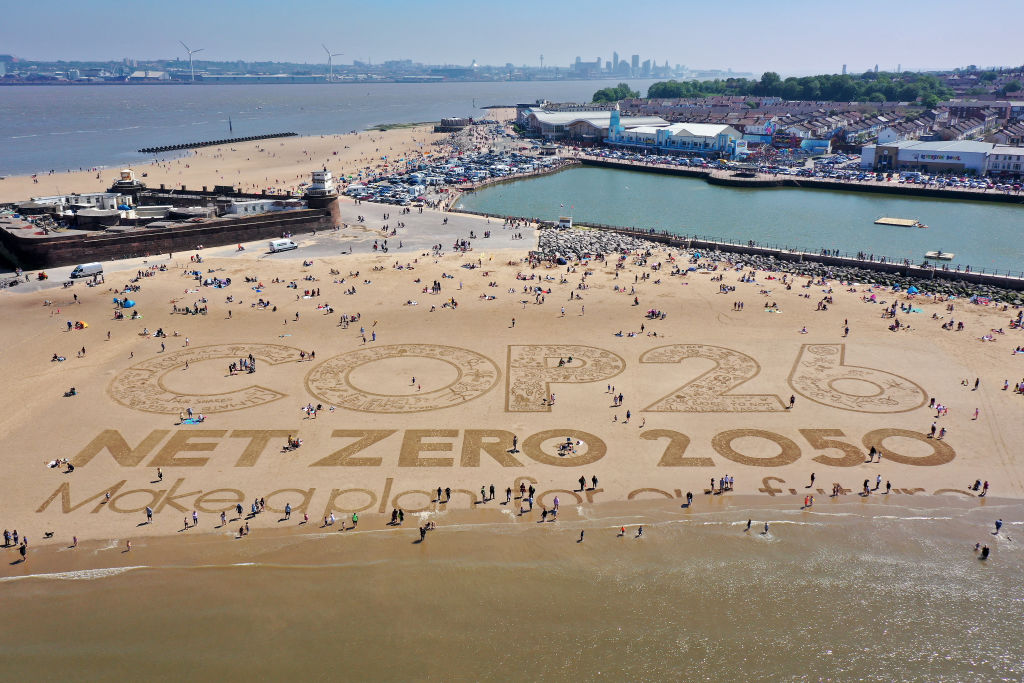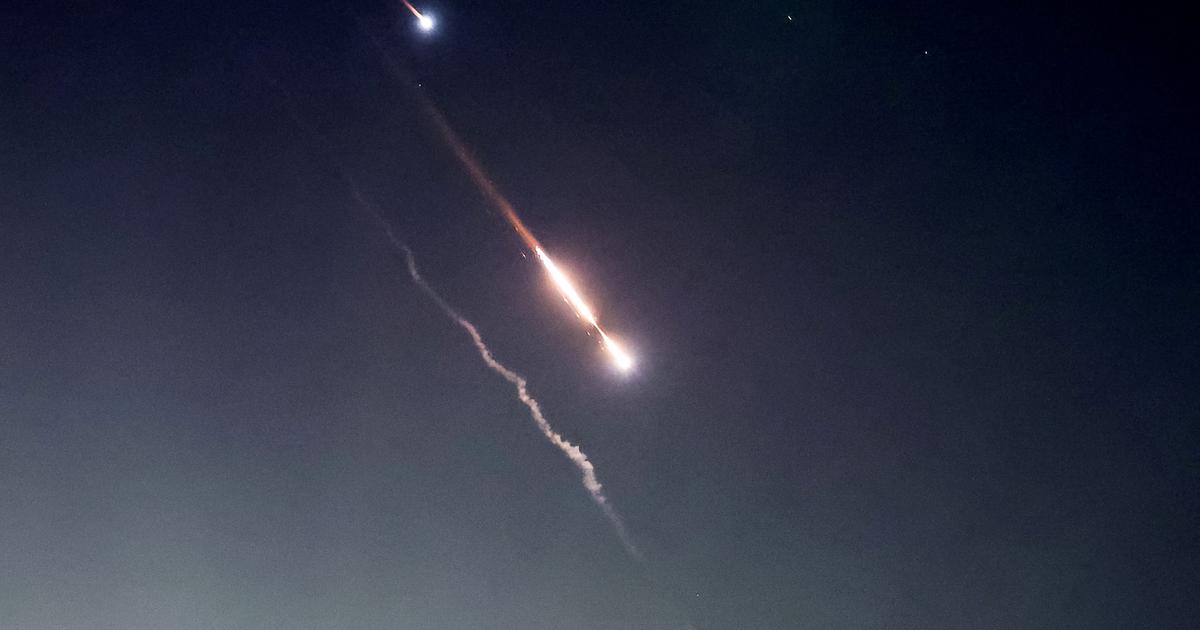UN: The world plans to produce more fossil fuels 1:06
(CNN Spanish) -
All eyes are on Glasglow, Scotland, where COP26 will officially begin on October 31, the UN climate change summit that comes at a key moment: scientists have warned that the window to limit rising global temperatures and avoiding the worst consequences of this crisis is closing.
Here, everything you need to know about this conference that could be attended by 25,000 people.
What does COP26 mean?
COP is the abbreviation for the Conference of the Parties to the United Nations Convention on Climate Change.
It is an event that takes place annually, although it was postponed last year due to the pandemic.
World leaders attend, but much of the discussions take place between ministers and other high-level officials working on climate issues.
The 26th means this is the 26th meeting of the group, which is hosted by the UK.
OPINION |
Climate parachutes at COP26
Conferences are large events with many side meetings that attract people from the business sector, fossil fuel companies, climate activists, and other groups.
Some are successful - the Paris Agreement was finalized during COP21, for example - and others are painfully unproductive.
G20 countries' CO2 emissions grow 0:49
What is the state of the planet?
The planet's average temperature is rising faster than scientists believed, according to a key report released in August by the United Nations Intergovernmental Panel on Climate Change (IPCC), which further confirms that humans are causing this. heating.
The report also underscores that the only way to stop warming is to end greenhouse gas emissions: the longer it takes, the hotter it gets, and shows that the impacts of climate change are already strong in all regions of the world. planet and will get worse with every fraction of a degree of warming, this includes heat waves, droughts, floods, sea level rise, etc.
advertising
Some changes are already irreversible, even in the lowest emission scenarios, according to experts who claim, for example, that ice sheets will continue to melt for hundreds or thousands of years.
2500, the apocalyptic year caused by climate change 0:45
What are the objectives of COP26?
Alok Sharma, Member of the British Parliament and Chairman of COP26, has said that he wants this year's conference to reach agreement on several key objectives, including:
Keeping the 1.5 target alive, a target
that some fossil fuel producing countries have resisted, at least in terms of strengthening the language attached to it in any deal.
Putting an end date on the use of coal without capture and storage technology
, which leaves open the possibility of continuing to use some coal, as long as most of the greenhouse gas emissions of the fossil fuel are captured, preventing them from entering the atmosphere.
Some scientists and activist groups have said that all coal should go down in history.
Provide $ 100 billion in annual climate policy funding
, agreed to by rich nations, to help developing countries reduce fossil fuel emissions and adapt to the impacts of the crisis.
Make all new cars
sold in a 14-19 year period zero emissions.
End deforestation
by the end of the decade, as forests play a crucial role in removing carbon from the atmosphere
Reduce emissions of methane
, a powerful gas with more than 80 times the heating power of carbon dioxide.
A key antecedent: the Paris Agreement
More than 190 countries signed the Paris Agreement after the COP21 meeting in 2015, to limit the rise in global temperatures to less than 2 degrees Celsius above pre-industrial levels, preferably 1.5 degrees.
Young people ask leaders to comply with the Paris Agreement 2:37
Half a degree may not seem like a big difference, but scientists say any further increase beyond 1.5 degrees will trigger more intense and frequent weather extremes.
For example, limiting warming to 1.5 degrees instead of 2 degrees could result in around 420 million fewer people being frequently exposed to extreme heat waves, according to the UN.
The key findings of the UN report on the climate crisis leading up to COP26
Although the Paris Agreement was a milestone in the search for solutions to the climate crisis, it did not include details on how the world was going to achieve its goal.
Subsequent COPs have sought to make the accompanying plans more ambitious and detail courses of action.
What are the commitments for the reduction of greenhouse gases?
Almost 200 countries have committed to reducing greenhouse gas emissions to avoid the worst consequences of the climate crisis.
However, there is still a huge gap between what has been promised and what scientists say is needed, according to a report by the United Nations Environment Program (UNEP).
Five days before COP26, dozens of nations had not yet officially updated their emission reduction commitments, as they were supposed to do according to the rules of the 2015 Paris Agreement. Of the G20 countries, they represent 80% of global emissions, only six nations have formally increased their targets.
The world promised to cut greenhouse gas emissions: these countries are not meeting their targets
The UNEP report concludes that new and updated commitments so far will reduce an additional 7.5% of emissions by 2030, but a 55% cut is needed to meet the goal of containing warming to 1.5 degrees Celsius.
Europe seeks carbon neutrality 0:42
According to UNEP, with the current objectives of the countries, the world will continue to warm up to 2.7 degrees.
Faults with warning
Russian President Vladimir Putin and his Brazilian counterpart Jair Bolsonaro have confirmed that they will not attend.
Mexican Andrés Manuel López Obrador, South African Cyril Ramaphosa and Japanese Prime Minister Fumio Kishida have not yet confirmed attendance.
They are all important G20 leaders when it comes to climate because of their countries' emissions, fossil fuel production, or both.
ANALYSIS |
Failure looming at COP26?
Covid-19 looms over this key climate summit, which several leaders have already announced they will be missing
China's President Xi Jinping, the leader of the world's most greenhouse gas emitting country, who has not left China since the start of the covid-19 pandemic, is unlikely to attend.
CO2 levels in the atmosphere reach a new maximum 1:29
To finish: 3 key concepts
During COP26 you will likely hear certain key climate concepts over and over again.
Here we go over some of them.
In this link you can find extended explanations and other terms that are important to know.
Net zero emissions
: they are achieved by removing as many greenhouse gases from the atmosphere as are emitted, so that the net amount added is zero. To do this, countries and companies will have to resort to natural methods, such as planting trees or restoring grasslands, or using technology to "capture" the gas and store it.
Carbon Capture and Storage
: The technology to remove and contain carbon dioxide from the atmosphere is known as carbon capture and storage. Carbon is typically captured at its source, directly from coal, oil, or gas when burned, but new technology is being developed to literally suck carbon out of the air. In both cases, carbon can be stored, usually buried in deposits underground or under the sea floor, in what are known as artificial carbon sinks.
CDN
: Nationally Determined Contributions is a term used by the UN for each country's individual national plan to reduce greenhouse gas emissions.
The CDNs are supposed to be updated every five years and presented to the UN, with the idea that each country's goal grows over time.
Dozens of countries have not submitted their updates before COP26.
With information from Ivana Kottasová, Brandon Miller, Rachel Ramírez, John Keefe, Luke McGee and Laura Smith-Spark.
Climate change



/cloudfront-eu-central-1.images.arcpublishing.com/prisa/DOOQ2YEAZJCSNITR6TA2ARDQT4.jpg)
/cloudfront-eu-central-1.images.arcpublishing.com/prisa/NIFZFFYBFVAU5FVWDHC43ESC5M.jpeg)
/cloudfront-eu-central-1.images.arcpublishing.com/prisa/6YOQKRNM2VFEDJ77EV4BG7TTOQ.JPG)







